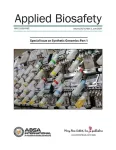(Press-News.org) University of Leeds news
Children who are not considered “school ready” by their teachers are more than twice as likely to become persistently absent at some point in their education, according to a new study led by the University of Leeds.
Researchers analysed data for 62,598 children aged 5-13 from across the Bradford district and compared it with school absence records between the academic years 2012/2013 and 2019/2020 to identify associations between early childhood problems and absenteeism.
The team from the School of Psychology and the Born in Bradford Centre for Applied Education Research found that 67% of all persistent absentees with attendance below 90% were considered “not school ready” when they entered reception. This contrasted with only 37% of children “not school ready” who were not persistently absent.
The researchers believe their findings, which are published today in the Royal Society Open Science Journal, show that the seeds of absenteeism are sown early in childhood and that school readiness measures already used by teachers could identify children at risk of long-term disengagement from the education system.
Lead author Dr Megan Wood, a post-doctoral research fellow in the School of Psychology, said: “School is where children develop and flourish, academically, emotionally, socially, and physically.
“However, as a society, we are edging towards a school absence epidemic, with many pupils missing out on opportunities to thrive by not attending every day. This has worsened dramatically since the pandemic.”
In the UK, absenteeism is a major concern for school leaders and policymakers, with data from the 2022/23 autumn term showing that nearly a quarter of all pupils missed at least 39 half-day sessions. According to the UK’s Department for Education, this means they are considered a “persistent absentee” with attendance below 90%.
The number of children classified as being “persistently absent” has risen over time, particularly between 2017-18 and 2020-21, with the more recent figures attributed to the impact of the Covid-19 pandemic. These figures have led to a formal inquiry by the UK Government’s Education Committee.
The researchers say there is an urgent need to understand the factors that lead to absenteeism and determine how children at risk of this behaviour can be identified before they disengage from the school system.
School readiness assessments in England involve teachers using a three-point scale (emerging, expected, exceeding) to rate a child’s performance on various areas of development, including physical; personal, social and emotional; communication; maths and literacy. Children rated as ‘emerging’ in any of the early learning goals are defined as not being school ready.
The researchers say potential explanations for the relationship between school readiness and absenteeism could be due in part to the engagement levels of parents, with those who are more engaged better preparing their children for the learning environment, resulting in children who are more excited to learn. Such parental engagement may continue throughout the child’s school journey, in the form of helping with homework and ensuring children arrive at school ready to learn.
Alternatively, not being school ready may be indicative of underlying needs, such as neurodivergence or mental health issues that are not currently being met, making school difficult for these children.
Co-author, Mark Mon-Williams, Professor of Psychology at the University of Leeds, said: “There is a school absence crisis and the long-term consequences for the UK are frightening. The UK's future depends on a well-educated and healthy workforce and the evidence shows clearly that school absence is a major risk factor for poor health in later life.
“This research shows that we need to act early and how we can identify children at risk before they disengage with school. It also highlights that there are many reasons why children are absent, and suggests we need evidence-based responses tailored to individual circumstances to address the crisis.”
The researchers found that socioeconomic circumstances, measured by eligibility for free school meals, were a major risk factor for persistent absence.
Ethnicity was also found to be associated with persistent absenteeism, with children of Pakistani heritage having significantly lower odds of becoming a persistent absentee compared to children of White British heritage.
Dr Wood added: “It is often too late to intervene once the problems have already begun. Instead, preventative measures should be adopted to avoid children disengaging from school in the first place.
“These findings demonstrate how we can use existing data – readily available to schools and teachers - to highlight the pupils who may need additional support to keep them engaged with school, even prior to problems arising.
“We urge policymakers to encourage the use of such data within schools. By identifying need early, we can ensure all pupils are provided the opportunity to grow and develop the skills needed to function within society.”
The researchers believe their findings raise further questions about which early interventions or support may be the most appropriate to stop persistent absenteeism. They intend to investigate those questions in subsequent studies.
Ends
END
Early childhood problems linked to persistent school absenteeism
Children who are not considered “school ready” by their teachers are more than twice as likely to become persistently absent at some point in their education, according to a new study led by the University of Leeds.
2024-06-27
ELSE PRESS RELEASES FROM THIS DATE:
Use of glucose monitors by people not living with diabetes needs more regulation
2024-06-27
A new narrative review1 led by researchers at UCL and Birmingham Children’s Hospital has found there is a lack of evidence to demonstrate the effective use of continuous glucose monitors (CGMs) in people not living with diabetes (PNLD).
In the study, published in Diabetic Medicine, researchers conclude there is currently little published evidence on how accurate CGMs are in measuring blood glucose levels in PNLD, nor sufficient evidence of what the health benefits or utility ...
Two studies shows mixed progress against EoE
2024-06-27
Despite high hopes, a drug that wipes out the namesake cell type associated with the disease eosinophilic esophagitis (EoE) doesn’t make patients feel better and doesn’t reverse tissue damage in their throats.
Meanwhile, data show that a different drug that had previously been approved for use in adults and teens with EoE is also safe and effective for children under 12 who weigh at least 15 kg (about 33 pounds).
The results of these clinical trials—plus an accompanying editorial—appear in the June 17, 2024, edition of The New England Journal of Medicine.
“Together, these trials provide exciting advances in our understanding of, and treatment options for, ...
Specific bacteria in your gut are involved in compulsive eating and obesity
2024-06-27
Vienna, Austria: An international team of researchers has identified specific bacteria in the gut that are associated with both mice and humans developing an addiction to food that can lead to obesity. They have also identified bacteria that play a beneficial role in preventing food addiction.
The research is presented today (Thursday) at the Federation of European Neuroscience Societies (FENS) Forum 2024 and is published simultaneously in the journal Gut [1,2].
Professor Elena Martín-García, from the Laboratory of Neuropharmacology-NeuroPhar in the Department of Medicine and Life Sciences at the Universitat ...
More than a quarter of ‘healthy’ over-60s have heart valve disease, according to new research
2024-06-27
Almost 4,500 healthy and symptom-free over-60s were examined, with 28pc found to have heart valve disease
Age was found to be strongly associated with an increased incidence of significant heart valve disease
Study lays the foundation for more research into the potential role of screening in the elderly population
Peer-reviewed – Prospective Cohort Study - People
The sheer scale of undiagnosed heart valve disease in our ageing population has been revealed for the first ...
Sylvester Cancer Tip Sheet - June 2024
2024-06-26
BLOOD CANCER
Sylvester Expert Endorses FDA’s Recent Cancer Drug Approval
Mikkael Sekeres, M.D., chief of the Division of Hematology at Sylvester, who specializes in treating leukemia and myelodysplastic syndromes (MDS), expressed his support for the Food and Drug Administration’s recent approval of the drug imetelstat. The drug, a telomerase inhibitor, treats cancer-related anemia in patients with lower-risk MDS. “With approval of imetelstat to treat myelodysplastic syndromes, we finally have another approach ...
Playing youth sports linked to better mental health in adults
2024-06-26
COLUMBUS, Ohio – Adults who continuously played organized sports through their youth have fewer symptoms of anxiety and depression than those who never played or those who dropped out, a new study finds.
And those who dropped out of sports had poorer mental health than those who never played at all.
But many more people drop out of youth sports than play continuously until they are 18, said Chris Knoester, senior author of the study and professor of sociology at The Ohio State University.
“If you play and stick with sports, it’s ...
Researchers find genetic stability in a long-term Panamanian hybrid zone of manakins
2024-06-26
We often think of species as separate and distinct, but sometimes they can interbreed and create hybrids. When this happens consistently in a specific area, it forms what’s known as a hybrid zone. These zones can be highly dynamic or remarkably stable, and studying them can reveal key insights into how species boundaries evolve—or sometimes blur. In a new study published in Evolution, researchers at the University of Illinois Urbana-Champaign describe a hybrid zone between two manakin species in Panama that ...
Special Issue of Applied Biosafety focuses on synthetic genomics
2024-06-26
In its first special issue on Biosafety and Biosecurity Considerations of Synthetic Genomics, the first part of a two-part special issue of the peer-reviewed journal Applied Biosafety focuses on the growing availability of customizable nucleic acid sequences and genomes from commercial sources. The issue also describes the advancements in desktop synthesis devices that enable the creation of on-demand nucleic acids. Click here to read the special issue now.
The rapid technological advancements described in part one of this two-part special issue are raising concerns among biosecurity experts and policymakers. The manuscripts in this issue explore the challenges, opportunities, and ...
Simple new process stores CO2 in concrete without compromising strength
2024-06-26
By using a carbonated — rather than a still — water-based solution during the concrete manufacturing process, a Northwestern University-led team of engineers has discovered a new way to store carbon dioxide (CO2) in the ubiquitous construction material.
Not only could the new process help sequester CO2 from the ever-warming atmosphere, it also results in concrete with uncompromised strength and durability.
In laboratory experiments, the process achieved a CO2 sequestration efficiency of up to 45%, meaning that nearly ...
Osiris 39 examines the role of disability in the history of science
2024-06-26
Disability studies has gained prominence in recent years, transforming fields ranging from design to literary studies with insurgent approaches to access and representation. The newest volume of Osiris, “Disability and the History of Science,” extends this movement to ask how disability has been a central, if unacknowledged, force in the scientific disciplines and the history of science. The volume examines the many roles that disability and disabled people have played throughout the history of science, calling attention to the shaping of scientific knowledge production by disability.
Editors Jaipreet Virdi, Mara Mills, and Sarah F. Rose, in their introduction ...
LAST 30 PRESS RELEASES:
$3 million NIH grant funds national study of Medicare Advantage’s benefit expansion into social supports
Amplified Sciences achieves CAP accreditation for cutting-edge diagnostic lab
Fred Hutch announces 12 recipients of the annual Harold M. Weintraub Graduate Student Award
Native forest litter helps rebuild soil life in post-mining landscapes
Mountain soils in arid regions may emit more greenhouse gas as climate shifts, new study finds
Pairing biochar with other soil amendments could unlock stronger gains in soil health
Why do we get a skip in our step when we’re happy? Thank dopamine
UC Irvine scientists uncover cellular mechanism behind muscle repair
Platform to map living brain noninvasively takes next big step
Stress-testing the Cascadia Subduction Zone reveals variability that could impact how earthquakes spread
We may be underestimating the true carbon cost of northern wildfires
Blood test predicts which bladder cancer patients may safely skip surgery
Kennesaw State's Vijay Anand honored as National Academy of Inventors Senior Member
Recovery from whaling reveals the role of age in Humpback reproduction
Can the canny tick help prevent disease like MS and cancer?
Newcomer children show lower rates of emergency department use for non‑urgent conditions, study finds
Cognitive and neuropsychiatric function in former American football players
From trash to climate tech: rubber gloves find new life as carbon capturers materials
A step towards needed treatments for hantaviruses in new molecular map
Boys are more motivated, while girls are more compassionate?
Study identifies opposing roles for IL6 and IL6R in long-term mortality
AI accurately spots medical disorder from privacy-conscious hand images
Transient Pauli blocking for broadband ultrafast optical switching
Political polarization can spur CO2 emissions, stymie climate action
Researchers develop new strategy for improving inverted perovskite solar cells
Yes! The role of YAP and CTGF as potential therapeutic targets for preventing severe liver disease
Pancreatic cancer may begin hiding from the immune system earlier than we thought
Robotic wing inspired by nature delivers leap in underwater stability
A clinical reveals that aniridia causes a progressive loss of corneal sensitivity
Fossil amber reveals the secret lives of Cretaceous ants
[Press-News.org] Early childhood problems linked to persistent school absenteeismChildren who are not considered “school ready” by their teachers are more than twice as likely to become persistently absent at some point in their education, according to a new study led by the University of Leeds.




